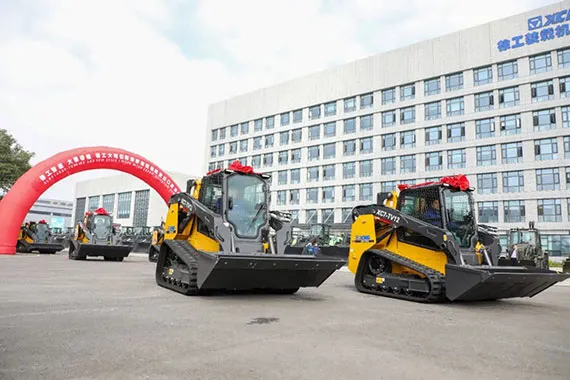Tips To Create a Heavy Equipment Maintenance Routine
Any contractor, builder, landscaper, or
other industrial leader works with heavy machinery daily. These tools have additional
maintenance needs due to their size and moving parts. To keep your equipment
operating smoothly, you must establish a maintenance routine and stick to it.
If you’re unsure where to start, here are some quick tips to create a heavy
equipment maintenance routine for your business.

Reference Your Owner’s Manual
Every piece of heavy equipment should come
with an operator’s guide or instruction manual of some kind. These guides
supply a wealth of information you can use to form a maintenance routine. For
example, the owner’s manual often includes recommendations for repairs, such as
how to do oil changes and tire replacements.
If you bought a piece of equipment used
that didn’t come with a user’s manual, reference the manufacturer’s website.
Some manufacturers allow you to input your exact equipment model and reference
its instruction and maintenance materials online.
Schedule Regular Inspections
Inspections are crucial parts of
determining a maintenance schedule. Inspecting your equipment regularly will
help you identify potential damage to your tools and whether you need to take
those pieces out of the rotation for repairs. Always be thorough when
inspecting your equipment. For example, look at your tools from all sides,
including your machines’ undercarriages. Inspections are crucial parts of
equipment undercarriage maintenance, especially when identifying damage like
worn treads or missing components.
Prioritize Maintenance
Occasionally, scheduling repairs for your
heavy equipment may get in the way of your construction, landscaping, and other
jobs. If you only have a certain number of equipment models and it comes down
to choosing between maintenance and meeting a deadline, choose your scheduled
maintenance. It’s never safe to use a damaged or outdated piece of equipment on
a jobsite. If your equipment needs repairs or maintenance, trying to power
through and using it to meet a deadline could result in even more damage or
cause injuries and accidents. This is why you should always prioritize
equipment maintenance over completing a job haphazardly.
Use these tips to create a heavy equipment
maintenance routine and keep your tools in working order for years to come.
Staying on track with maintenance can help reduce downtime, promote longevity
in your equipment, and ultimately stretch your business’s spending further.



















